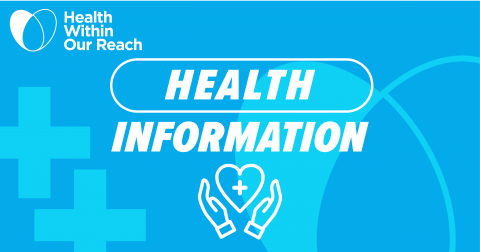May 26, 2023
5 ways COVID-19 has disproportionately affected women (and 4 actions to take)

Did you know that May 28 is the International Day of Action for Women's Health? While we still have a lot to learn about COVID-19, there is growing evidence that the disease may disproportionately affect the health of women, especially pregnant women and frontline workers. Here is some of what we know, and what we can do to keep ourselves, and the women in our lives, safe:
Women are more likely than men to suffer from long COVID-19. The Centers for Disease Control and Prevention (CDC) report that 9.4% of women experience post COVID-19 symptoms compared to 5.5% of men. Preliminary research suggests that a combination of biological and social factors may be responsible.
Pregnant people are more likely to suffer complications from COVID-19 than non-pregnant people. According to the CDC, pregnant people face an increased risk of becoming very sick from COVID-19 and may require hospitalization, use of a ventilator or special equipment to breathe. Pregnant people who contract COVID-19 are also more likely to experience pregnancy complications, including premature or stillbirths.
Despite facing greater COVID-19 risks, pregnant people are also disproportionately impacted by misinformation about COVID-19 vaccines. A survey from the Kaiser Family Foundation found that 7 out of 10 people who are or are planning to become pregnant were swayed by one or more COVID-19 vaccine myths. Pregnant people are often less willing to get vaccinated against COVID-19 than other groups, even though COVID-19 vaccines are safe, effective, and beneficial to both pregnant people and their developing babies.
COVID-19 has increased maternal mortality. A recent report by the Pan American Health Association (PAHO) found that more than 365,000 cases of and 3,000 deaths from COVID-19 reported in pregnant women in the Americas in the past two years.
Women caregivers have contracted COVID-19 at higher rates. UN Women reports that 7 out of 10 healthcare workers infected with COVID-19 in the United States are women. Moreover, caregiving industries often rely more heavily on women, who are more likely to find themselves caring for COVID-19 patients on the front lines.
While there is more to learn about the impact of COVID-19 on women, we can act today to help keep each other safe. These 4 action items can help support you and your community today:
Get up-to-date on your COVID-19 vaccines while they're still free (and help your loved ones, too): You’re up-to-date when you have completed a COVID-19 vaccine primary series and got the most recent booster dose recommended for you by CDC. The updated vaccines are safe, effective, and especially recommended for pregnant and breastfeeding people and their babies, who are more vulnerable to complications from COVID-19. Find out if you and your friends and family are eligible for a new booster dose here or call One Voice for Health, +1 737-414-5121.
Continue taking preventive measures at work and in your community: We already have a lot of evidence that quality masks, ventilation, and good hygiene are effective in reducing the risks of suffering from COVID-19 infections. These simple measures can prevent infections, minimize the effects of long-term COVID-19, and save lives.
Get tested: COVID-19 PCR and antigen tests are available at no cost to the general public, including the uninsured, at more than 15,000 sites across the United States. Find free COVID-19 tests here.
Know your labor rights: Chat with Sol to answer your questions about your rights to miss work due to illness, to work under safe and healthy conditions, and retaliation protections, among others. Then, work with your co-workers to identify opportunities to improve working conditions and support each other.
